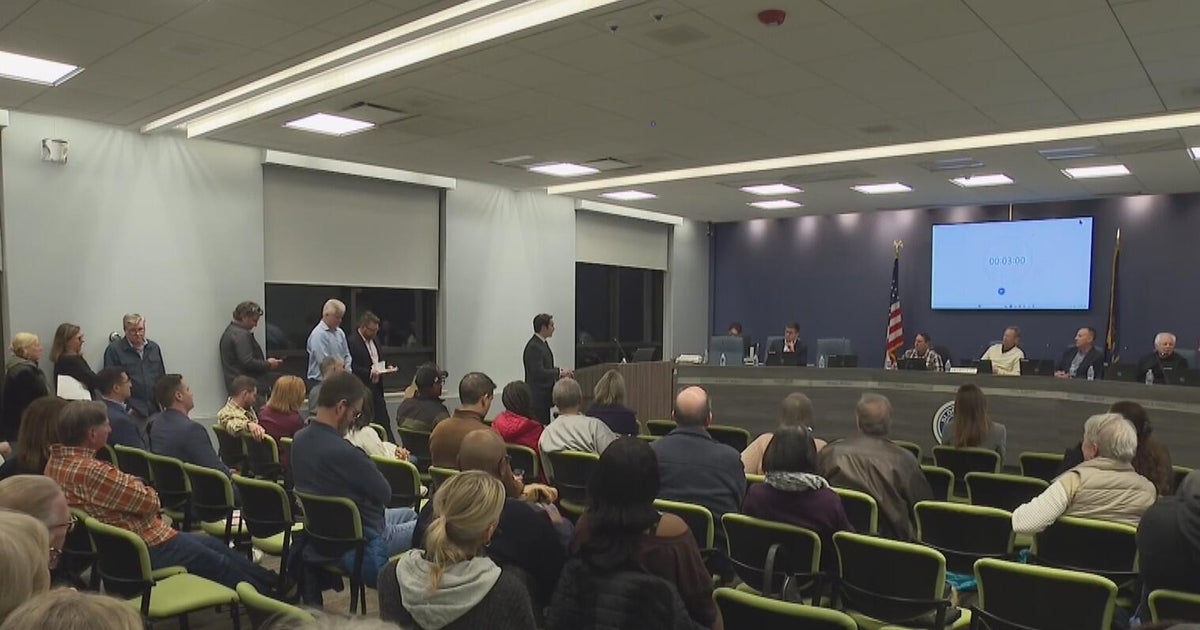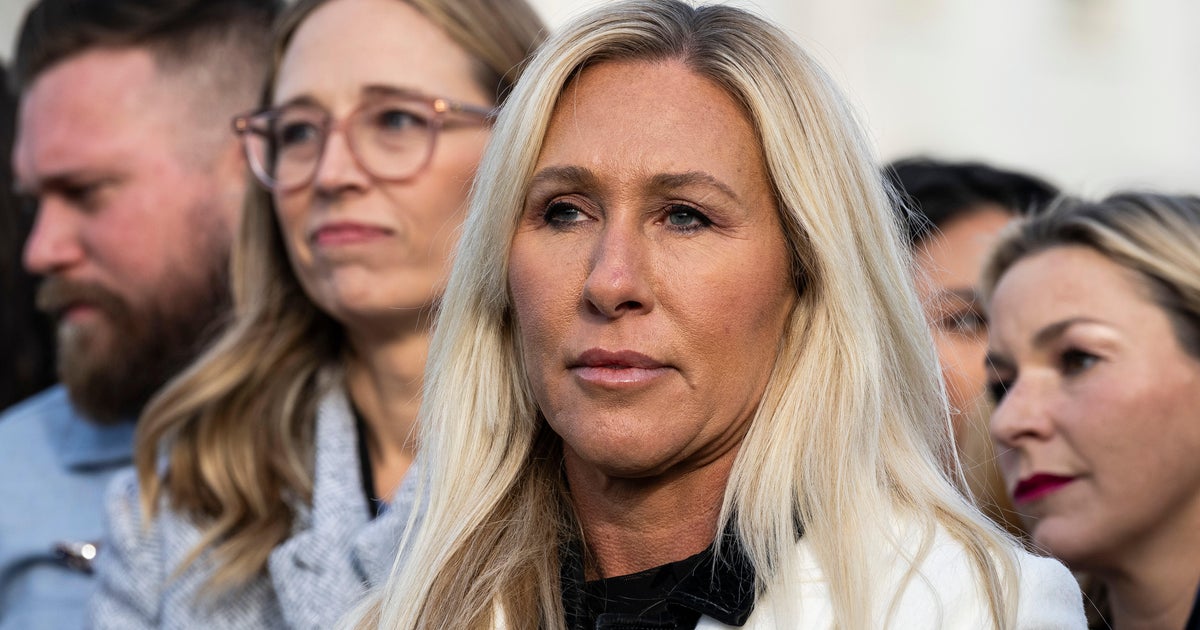Community Group Votes Against East Lakeview Wal-Mart
CHICAGO (CBS) -- A community group on Monday evening voted overwhelmingly against a plan by Wal-Mart to move into the East Lakeview neighborhood.
But the advisory vote does not mean anything has changed in Wal-Mart's plans to move into the Broadway at Surf retail complex, and Ald. Tom Tunney (44th) said at the meeting that he thinks the retailer will be coming to the neighborhood and it is not within the city's power to stop it.
At a meeting of the South East Lake View Neighbors Association (SELVN) Monday night at the Wellington Avenue Church, 615 W. Wellington Ave., 25 members of the group voted against supporting proposed Wal-Mart, compared with just four who voted in favor of the plan, and four abstentions.
Wal-Mart hopes to take over two vacant storefronts previously occupied by a Wolf Camera and a PetSmart, and sweep out an existing Cost Plus World Market, in the retail complex in the 2800 block of North Broadway. The store the retailer has in mind would be a Neighborhood Market, smaller in size than its all-purpose Supercenters and focusing primarily on groceries.
But the retailer has not signed a lease on the space.
At the meeting, SELVN board member Mike Demetriou presented a plan for a "restrictive covenant" to which Wal-Mart, Tunney, and the board had agreed.
Under the covenant, Wal-Mart would be limited to 33,395 square feet – actually slightly more space than the retailer is planning to take, so as to allow for small expansions for "administrative" purposes. If Wal-Mart elects to expand in violation of the agreement, the restrictive covenant allows the community to take the retailer to court to stop the expansion.
Under extreme circumstances, such as an expansion that goes ahead in secret, Wal-Mart could be liable for damages of $100,000 under the covenant, Demetriou said.
Many SELVN members and other meeting attendees were quick to dismiss the covenant as lacking in strength. They said the world's largest retailer is not likely to be deterred by a penalty of a mere $100,000, and that Wal-Mart would likely seek ways to void the covenant.
Demetriou conceded that the covenant could be challenged or "defeated," but said, "Is this better than nothing? Yes."
Others said the covenant misses the point, for the concerns of the community are not limited to whether Wal-Mart expands after opening. Several people at the meeting argued that if Wal-Mart comes into the neighborhood at all, small businesses will be forced to close and the character of the neighborhood will be changed permanently.
"If Wal-Mart comes in, we are going to lose all of those stores that we like, and that make this such a vibrant neighborhood," one attendee said.
Also at the meeting, Tunney outlined some agreements he said he had hammered out with Wal-Mart. He said in addition to the restrictive covenant, he had sought out a commitment that Wal-Mart would sell groceries as 75 to 80 percent of its merchandise at the store, refrain from opening any additional stores within one block of the Broadway at Surf, and come up with a traffic management plan for the increased traffic that would come to the area.
But this was not enough for many SELVN members and others at the meeting. They said the neighborhood does not want Wal-Mart to come in at all, and asked Tunney to take the same stand.
Tunney refused.
He said as far as Wal-Mart expanding in Chicago – and Lakeview – that ship sailed with an agreement with organized labor last summer. "Discriminating" against the retailer now would open up the city to litigation, Tunney said.
"I think a Wal-Mart of a particular size – ranging from 10 to 20 to 30 (thousand square feet), will come into our neighborhood," Tunney said.
Tunney said he had no feelings one way or the other about Wal-Mart, but he outlined what he said could be benefits of having the retailer in the neighborhood.
"As a small business operator, I'm not afraid of Wal-Mart. I think Wal-Mart is going to bring a lot of people into this neighborhood, and it might make some stores rethink their concept" and adapt to the new competition, Tunney said.
Tunney, who owns the Ann Sather's restaurant chain, also said he is going to Indianapolis Tuesday to see a Wal-Mart Neighborhood Market for himself.
But opposition to Wal-Mart still dominated much of the meeting. Following Tunney's presentation, Mark Thomas, owner of the Alley and several other stores on Clark and Belmont, and Suzanne Keers, executive director of the group Local First Chicago, delivered an anti-Wal-Mart presentation.
Keers said her group does not agree that keeping Wal-Mart out of the neighborhood is anti-competitive, given that communities have kept out such businesses as tattoo parlors, nail salons and liquor stores without such criticism.
"Why, suddenly, when it's the largest company in the world and a pension fund in Texas is involved (as the owner of the Broadway at Surf building), are we suddenly anti-competitive?" she said.
She also argued against the contention presented in a Monday Chicago Tribune editorial in favor of the East Lakeview Wal-Mart, which claimed in part that keeping Wal-Mart out would be rejecting new jobs.
"For the whole city of Chicago, there is enough retail," Keers said. "When Wal-Mart comes in, it's not like the pie gets bigger… it takes from somebody else."
Thomas presented an alternative plan for bringing business to the neighborhood – both around the area where Wal-Mart wants to locate, and on Clark Street south of Diversey Parkway and Broadway, where many stores have recently gone out of business. He said vacant storefronts could be made into "live-work spaces" for entrepreneurs to facilitate starting new small businesses.
Wal-Mart told SELVN that if its plans go ahead, the target opening date for the store will be the spring of 2012, SELVN president Liz Cohen revealed at the meeting.
Adam Harrington, cbschicago.com







